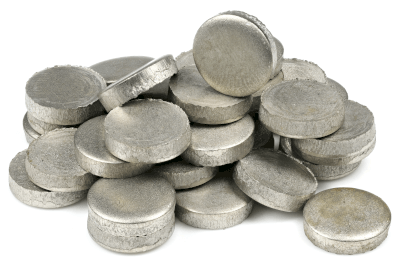What Is Titanium?

Titanium, symbolized as Ti and with atomic number 22, is a silvery-white, lightweight, and strong metal known for its exceptional corrosion and heat resistance. Its biocompatibility makes it ideal for medical devices like artificial joints and dental implants. However, its toughness necessitates specialized processing techniques, especially since it forms an oxide film when exposed to oxygen, affecting welding and processing methods.
Uses of Titanium
- Aircraft: Used in frames, wings, landing gear, and engine parts.
- Automobiles: Found in engine parts, exhaust systems, suspensions, and wheels.
- Medical Devices: Utilized for artificial joints, dental implants, and surgical instruments.
- Electronics: Used in smartphone casings, electronic contacts, and circuit boards.
- Chemical Industry: Applied in piping, reaction vessels, and hardware for its resistance to chemicals.
- Sporting Goods: Common in bicycle frames, tennis rackets, and golf clubs for its strength and lightweight.
- Manufacturing and Energy Industries: Employed in tools, machine parts, and components for thermal and nuclear plants.
Properties of Titanium
- Lightweight and High Strength: About half the mass of iron with superior strength due to its hexagonal close-packed structure.
- Corrosion Resistance: Forms a protective oxide film that shields it from acids, alkalis, and seawater.
- Heat Resistance: Maintains physical properties at high temperatures, suitable for high-temperature environments.
- Wear Resistance: The oxide film provides high wear resistance, protecting the metal even when it wears down.
Types of Titanium
- Titanium Dioxide: A white powder used in paints, food additives, and as a UV absorber.
- Titanium Carbide: Known for its hardness, and used in cutting tools and machining parts.
- Titanium Nitride: Offers wear and corrosion resistance, used in coatings and tools.
- Titanium Silicon Carbide: A compound with high-temperature strength, used in aerospace and nuclear applications.
Other Information on Titanium
- Low Thermal Conductivity: Its tightly packed atoms limit thermal energy conduction, making it a poor conductor of heat.
- Non-magnetic: Pure titanium and most alloys are nonmagnetic, with some exceptions.
- Oxidation Resistance: Forms a thin, adherent oxide film that protects it from further oxidation.
- Biocompatibility: The oxide layer’s stability and chemical inertness make titanium ideal for medical implants and devices.
- Softening Phenomenon: Prolonged exposure to high temperatures can lead to softening due to changes in its crystalline structure.